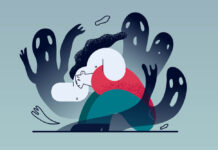The practice of prescribing multiple psychiatric medications, known as polypharmacy, to children and adolescents is increasingly becoming a global concern due to its potential risks and lack of evidence.
A new study published in the Nordic Journal of Psychiatry finds that Finnish children and adolescents prescribed antipsychotic drugs are commonly prescribed other psychiatric drugs simultaneously. The current research, headed by Eveliina Varimo of the University of Helsinki, also finds that the drugs most widely prescribed alongside antipsychotics are antidepressants and stimulants.
Those already prescribed a psychiatric drug before receiving a prescription for antipsychotics, adolescents aged 13 – 17 years, and girls were the groups most likely to be prescribed multiple psychotropic drugs simultaneously. The authors write:
“In this nationwide register study, we found that nearly half of new antipsychotic users had psychotropic polypharmacy during the first year of their antipsychotic treatment. In new users aged over 13 years, the girls exceeded the boys in frequency of polypharmacy, and the total frequency of polypharmacy was more common in girls than in boys. Antidepressants and psychostimulants/atomoxetine were mostly combined with antipsychotic drug treatment.”
The study raises important questions about the increasing use of multiple psychotropic drugs in young people, their potential health impacts, and the need for reform in pediatric psychiatric treatments.















Hmmmmm…..Those Finns must be doing something (actually a lot of things) right as they have been named the happiest country in the world in the 2024 World Happiness Report. https://worldhappiness.report/
Report comment
These trends are probably more pronounced in less egalitarian countries.
Report comment